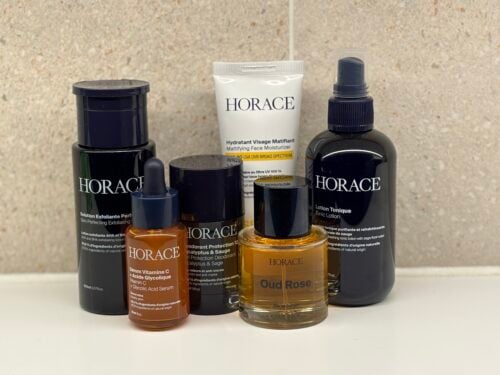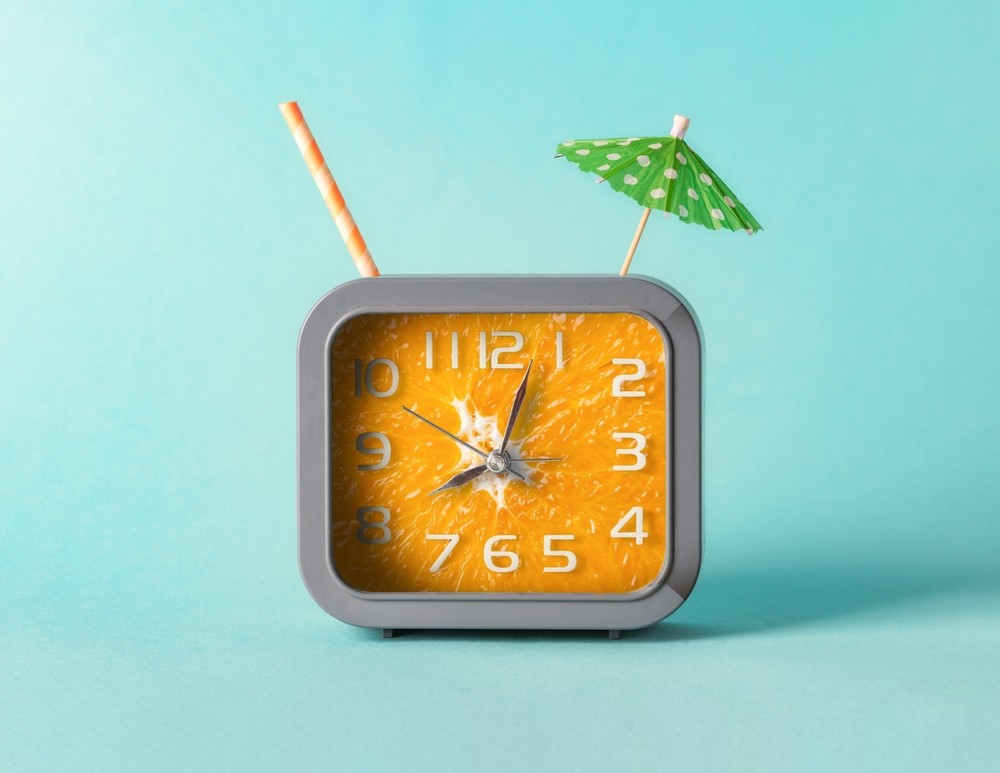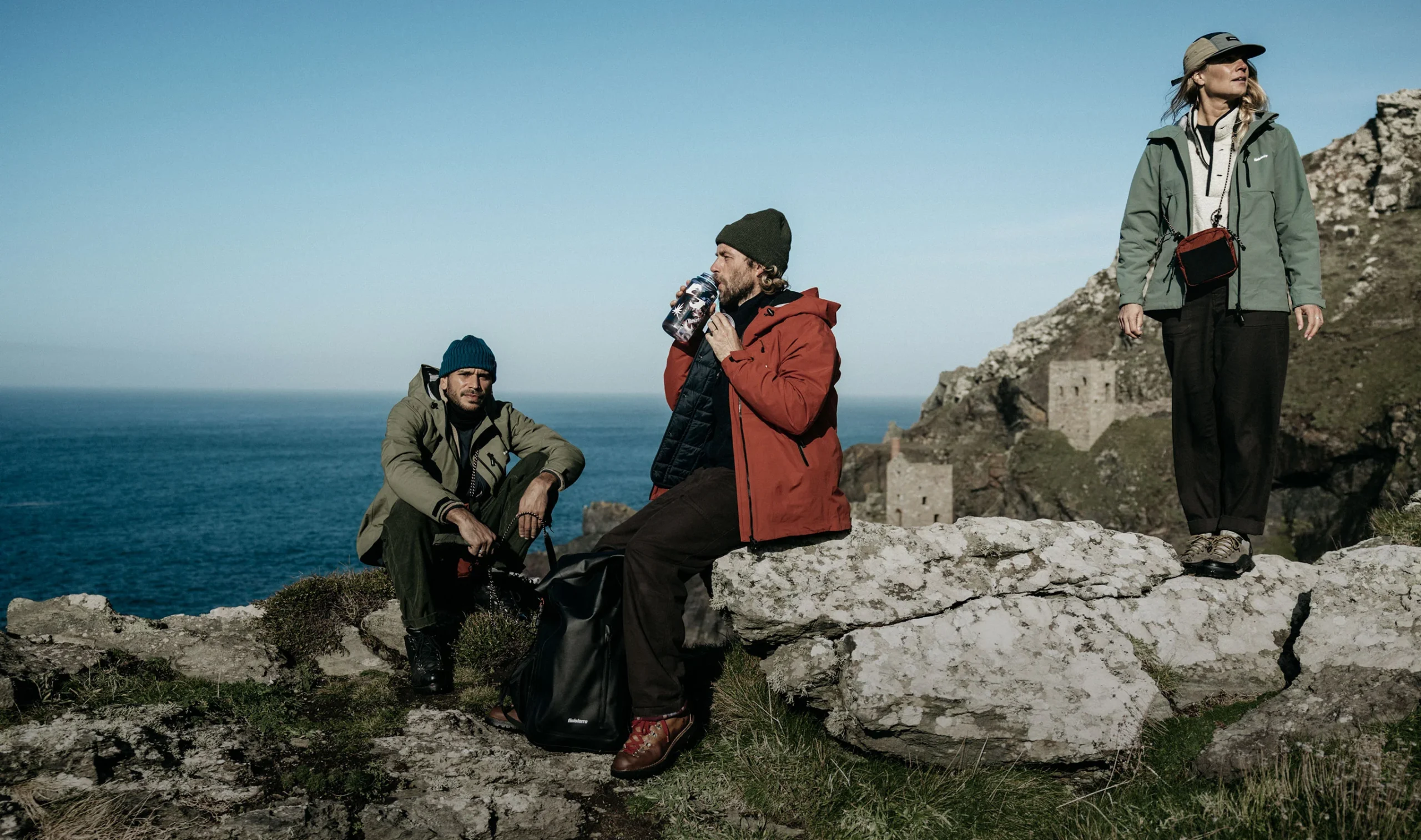Horace Skincare Review: Why Horace Is Dominating The Modern Man’s Bathroom Cabinet
Feb 21, 2026Curated Period Menswear – Permanent Style
- Apr 9, 2024
- 0 Comments
630
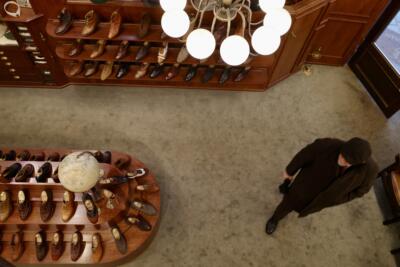
By Manish Puri
There’s not exactly a shortage of quality secondhand and vintage stores in Stockholm.
Take a stroll along Hornsgatan for example – a busy road running through the Södermalm neighbourhood – and within just a few hundred metres you’ll pass Broadway & Sons, Herr Judit and Ruth & Raoul (to name just a few).
Interestingly, it was explained to me by local friends that Sweden’s higher disposable income coupled with a predilection for “the new” (trends, brands, styles) ensures a healthy supply-line of used goods (clothes and interiors, in particular) into those shops.
And it was one such friend, the ever-stylish Erik (the loveliest of fellas who possesses the irritating ability to go thrifting at a Boy Scouts jumble sale and still come home with an immaculate made-in-Italy, Ralph Lauren DB blazer in his size), who suggested I pay a visit to a vintage place called A. Marchesan whilst I was in town.
What I found, was an extensive selection of vintage tailoring and accessories, crowned by a very wearable range of overcoats. But let’s walk through the store together.
The default mise en scène of many of the vintage shops I’ve frequented is a few wall racks groaning under the weight of assorted and unrelated garments. But A. Marchesan was far removed from this; the premises oozed old-world department-store charm and considered curation.
The ground floor houses footwear and accessories. The shoes – displayed on a beautiful wooden, oval-shaped, tiered plinth – were largely Swedish (in the 1930s nearly 250 shoe factories operated in Sweden, employing some 11,000 workers), English and American – with brands like Alden, Allen Edmonds, Church’s, Edward Green, Florsheim, Foster & Son and John Lobb well represented.
The owner, Alexander Marchesan, told me that finding vintage shoes in saleable condition was an increasingly tall order. And so, it’s an endorsement of Simon’s recommendation of Crockett & Jones as a “good-value” shoe that one of the few new products that Alexander carries is a range of brogues and oxfords from C&J.
The dearth of traditional footwear has also presented Alexander with an opportunity to develop his own product, which he was eager to show me. As Yuki Matsuda, founder of artisanal shoe brand Yuketen, put it to Simon recently, “I think a lot of companies start this way – they want to recreate the vintage that they see but can’t buy any more”.
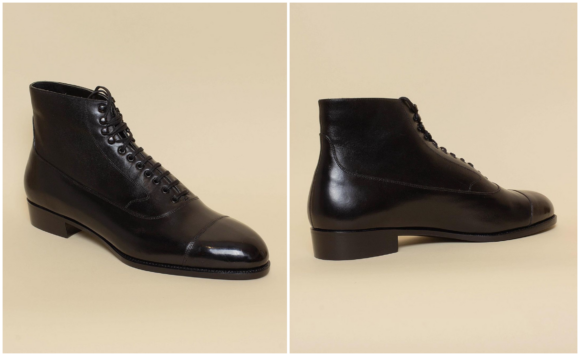
The A. Marchesan Balmoral boot (above) is inspired by a 1920s-1930s style worn in the heyday of Swedish shoemaking. Coincidentally, on my visit I was wearing a pair of Alden parajumpers which helped to bring the design specifics of the more formal Balmoral into sharper focus: an almond-shaped toe and refined waist, a narrower and shorter boot shaft, and more eyelets on the upper.
Made from French goatskin (as this shoe traditionally was) it’s a style that, even a century on, I think has a place in the modern wardrobe – especially in Stockholm where black boots in the winter seem to be de rigueur amongst the locals.
There were other in-house products under development (shirts and knitwear) that I was less taken with, but I’ll be keeping an eye open for the boots when they’re released later this year.
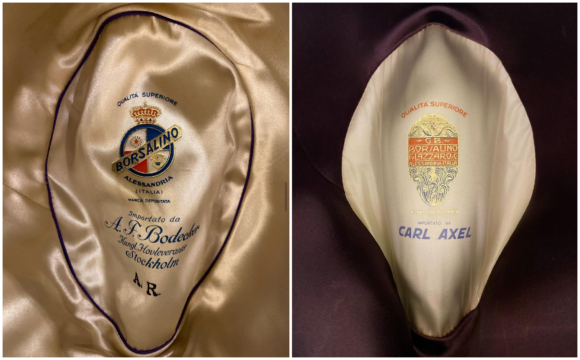
Past the shoes, towards the rear of the ground floor, was a large selection of hats – mostly made by the Italian company Borsalino alongside select vintage finds from Barbisio, Panizza, Preston, Stetson, Battersby, Lock & Co and Mossant.
Alexander joked that “there may be some debate about who made the best hats in the 20th century, but when it comes to the insides of the hats there’s not really a contest” (see above).
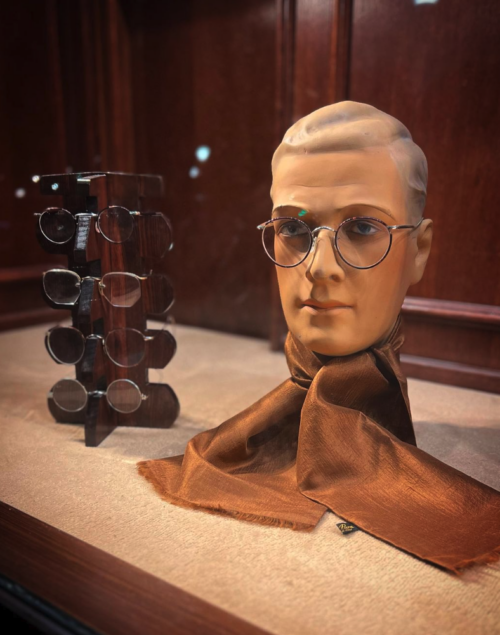
Adjacent to the hats was a healthy stock of eyeglasses, socks (also new, also English – sourced from Pantherella’s Vintage collection) and silk accessories: scarves, foulards and ties.
Simon wrote recently about his enduring love of ties and I’ve found that a vintage pick-up is often the perfect opportunity to try a different length/width or an unusual colour/pattern without breaking the bank.
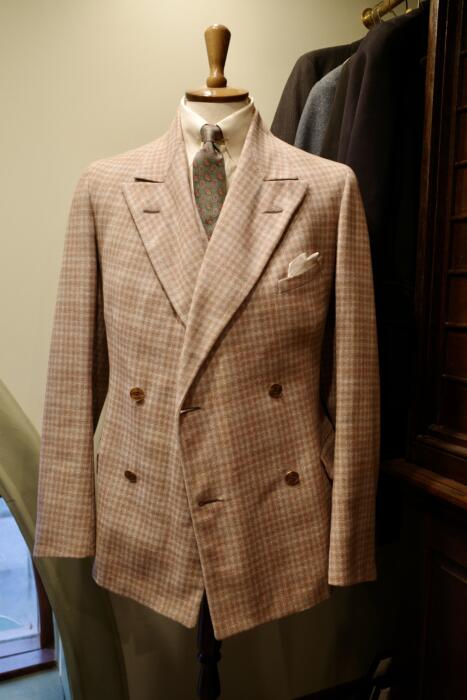
Upstairs on the first floor is where you’ll find the tailored offering.
In 1950, Sweden acceded to the General Agreement on Tariffs and Trades (GATT), and the subsequent influx of clothing (from cheaper markets such as Italy) had a similarly detrimental impact on Sweden’s textile industry as it did on shoemaking.
As a result, the majority of tailoring sold by A. Marchesan dates to the late fifties and prior, with an emphasis on Swedish bespoke and quality RTW alongside a smattering of UK and US garments.
I won’t attempt to summarise the vast style of suits and sportcoats – distinguishing between 1920s, 30s, 40s and 50s tailoring would require a whole series of articles authored by a source far more knowledgeable than myself. However the drapey silhouette of several jackets did bring Anderson & Sheppard to mind.
There may even be a link there to Swedish tailor Per Anderson, who founded the Savile Row house in 1906 and helped to develop the Drape Cut it became synonymous with.
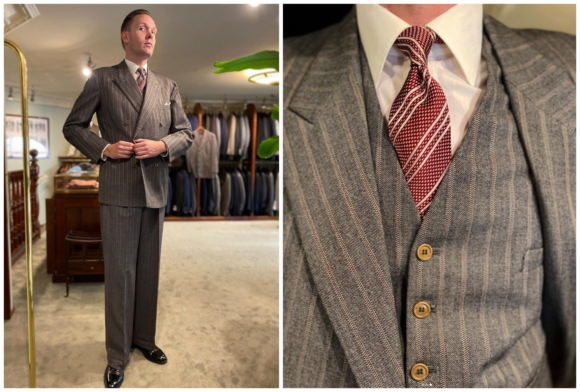
I can imagine some PS readers dismissing A. Marchesan as too “period” or “costume-y” for them.
Whilst this is understandable, I think it would be a real shame to miss out on the range of cuts and vintage cloths available. Just take a look at the unusual two-tone stripe of the 1940s Swedish double-breasted suit above. I suspect you’d be hard pressed to find something similar in a modern bunch.
Indeed, the closest I’ve seen is a Fox Brother’s limited edition cloth from their aptly-named Silver Screen collection – which has been expressly designed to “pay homage to the timeless elegance and sartorial excellence of […] the golden years of Hollywood”.
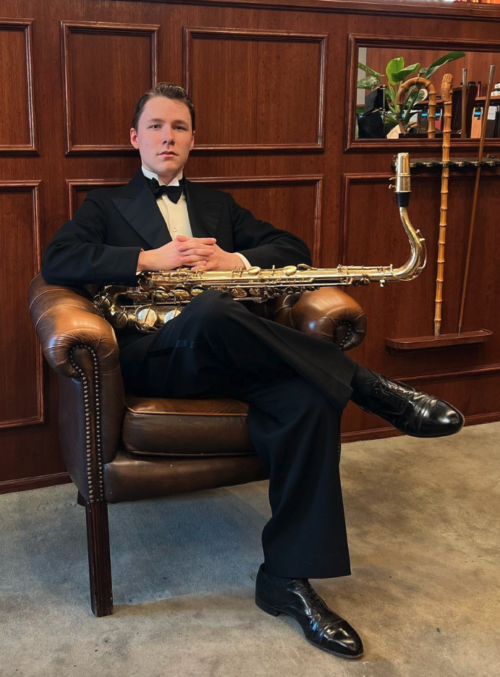
When browsing the collection of looks on A. Marchesan’s Instagram page, I’ve found that mentally expunging some of the period accessories – collar pins, hats and pocket watch chains – can make them a little more accessible and help cast them in a slightly less traditional light.
Above and below are just a few outfits that I think are great as is. I’d also love to hear from readers that have successfully incorporated period tailoring into their wardrobes with any tips on how to do so.
(Above – 1930s Swedish three-piece tuxedo. Below left – 1950s Swedish tweed in a black and violet houndstooth. Below right – 1940s Swedish three-piece suit in Harris Tweed.)
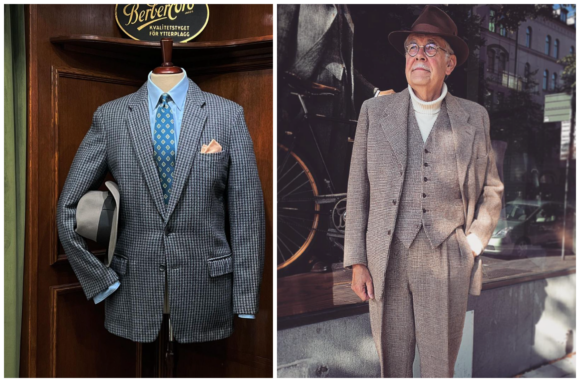
Now, you might remain adamant that vintage suits and jackets made from a heavier cloth, to a fuller length, with a strong lapel and generous silhouette is not for you. And yet, those are precisely the characteristics many of us look for in an overcoat.
It’s here that A. Marchesan really shone for me; their selection of winter coats was as comprehensive as anything I’ve encountered elsewhere – both in terms of quantity (they numbered in the hundreds) and quality.
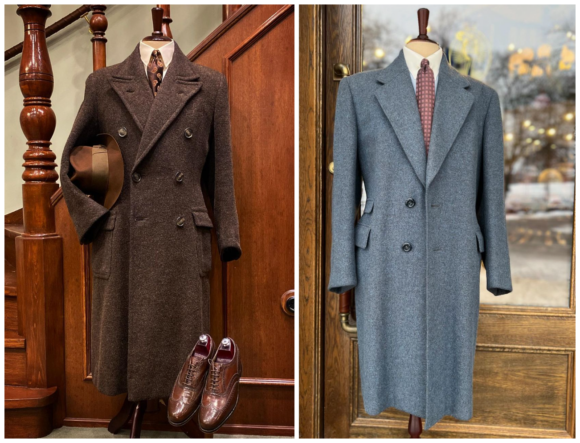
PS readers often ask where they can find value in classic menswear, and I’d argue that investing in a quality second-hand coat stands head and shoulders above all other options.
Considered purely from a financial perspective, a modest 20% saving on a good coat will be significantly more in pounds and pennies than a 40% saving on, for example, a nice pair of trousers or knitwear.
On top of that, if a coat’s style and cloth has already prevailed over 70-odd years, there’s no reason to believe one won’t be able to squeeze a few more good years from it.
And also, an overcoat is usually far more forgiving to imperfections in fit than a suit or sports jacket.
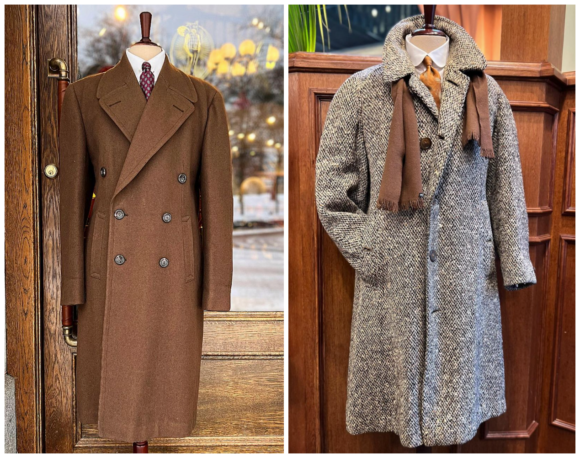
I could happily have departed A. Marchesan with three or four coats under my arm (not that I would have had the strength to carry that much wool). Indeed, it’s most unusual for a shop simply to have that many coats in my UK size of 38-40, let alone in the style and condition here.
After much deliberation, and careful examination of the excess baggage fees of my airline, I purchased a bespoke overcoat (below) made in 1959 by the now-defunct Stockholm tailors Janson & Wallgren, who at the time were holders of a hovleverantör (Royal Warrant).
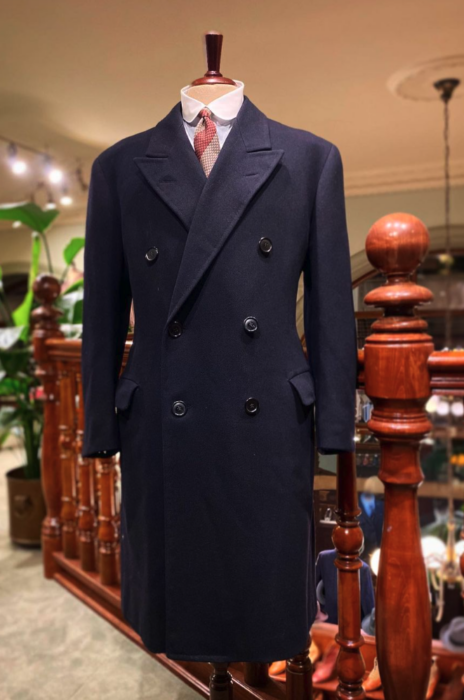
The coat is fashioned from a deep, dark-navy wool, sourced from the mill of They-Don’t-Make-Em-Like-They-Used-To.
Forgive me, I’m being frivolous here, but it’s incredible how many people have looked at the cloth since (and the way the twill catches the light) and commented on its superiority. A view lent credence by the fact that the coat, apart from a little wear around the neck, appears virtually new.
Even the minor details help set it apart: hand-warmer pockets, a truly sumptuous heavy satin lining finished with piping, and the original coat hook still attached to the collar. (A note to all the High Street retailers that I used to patronise when I was a younger man: this hook has taken the weight of a 2.5kg coat – yes, I weighed it – for 65 years, and your hooks couldn’t even hold a flimsy bit of schmatta for 65 minutes without it coming apart. Sort it!)
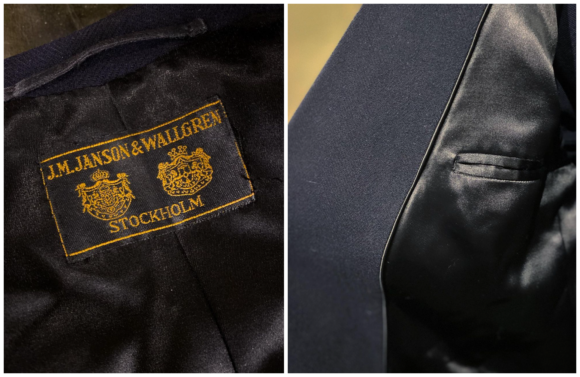
I departed A. Marchesan with a terrific new/old overcoat and a sweet reminder of what a funny little tribe we classic menswear folk are part of.
A Goth teenager had wandered into the shop to rendez-vous with his friend who was busy trying on a suit in the fitting room. To kill some time, the Goth – inky black hair and smokey-eyed, nails marked with the chipped remnants of an oxblood polish, wearing a jet-black uniform of cropped jeans, T-shirt and chunky platform boots – perused the shop’s collection.
He became increasingly bemused as he ran the rule over double-breasted waistcoats, top hats, silver-handled canes, monocles and spats. Our eyes met fleetingly, his face betraying a hint of incredulity. I knew exactly what was going through his mind: “And people reckon my style is out there?”
Manish is @the_daily_mirror on Instagram
Currently the only way to buy from A. Marchesan is instore or through their Instagram page. A webstore is under construction and Alexander hopes to launch it soon. I’ll update this article when it goes live.
Images courtesy of A. Marchesan.
Publisher: Source link


